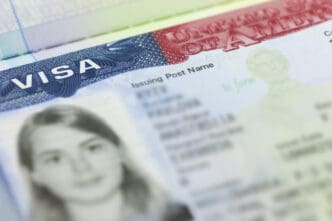Executive Summary
The Story So Far
Why This Matters
Who Thinks What?
Several nations, including South Korea, the United Kingdom, and Germany, are moving to capitalize on stricter U.S. immigration policies, particularly a new $100,000 fee for H-1B visas, by actively seeking to attract skilled foreign scientists and engineers to bolster their domestic technology sectors.
U.S. Policy Shift and Global Repercussions
On Friday, President Donald Trump introduced a significant $100,000 fee for new H-1B visas. These visas are widely utilized by U.S. technology companies to hire foreign professionals.
This policy change is part of a broader crackdown on immigration and is expected to significantly impact a sector that heavily relies on skilled workers from countries like India and China.
South Korea’s Proactive Stance
In response to the U.S. decision, South Korean Presidential Chief of Staff Kang Hoon-sik announced on Monday that he had instructed various ministries to develop strategies to attract scientists and engineers from abroad.
While specific details on these measures were not provided, Kang indicated that the government plans to prioritize initiatives in artificial intelligence and other key areas for a technology-led economy in next year’s budget.
European and British Interest
Across the Atlantic, British Prime Minister Keir Starmer is exploring proposals to abolish certain visa fees for top global talent. These reforms were already under discussion prior to President Trump’s announcement, but the U.S. decision has reportedly added momentum to efforts to overhaul Britain’s high-end visa system.
Germany is also signaling interest, with Bernhard Rohleder, head of Germany’s digital association Bitkom, stating that the new U.S. policy could present an opportunity for Germany and the wider European Union to attract highly skilled professionals.
The Global Race for Talent
The U.S. immigration policy changes are creating a ripple effect, intensifying the global competition for high-skilled talent. Countries like South Korea, the UK, and Germany are positioning themselves to draw in foreign scientists and engineers, aiming to boost their domestic industries and potentially reverse a brain drain that might otherwise benefit the United States.








